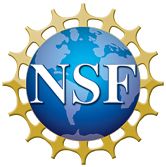Neal et al., 2013
Using the NSF-funded Shale Network Database and Critical Zone Observatories to Assess Water Quality Concerns in Areas of Shale-Gas Development
Neal, A., Mendoza, A., Simon, C., Abad, J., Vidic, R., Yoxtheimer, D., and Brantley, S. (2013)
AGU Science Policy Conference
-
Shale Hills, STAFF
-
National, Eel, Luquillo, Shale Hills, INVESTIGATOR, COLLABORATOR
Abstract
The recent expansion of unconventional gas exploration (via hydraulic fracturing or “fracking”) in Pennsylvania has led to concern among the general public about the resulting impact on water quality. Because of the chemical makeup of the Marcellus shale formation and the fluids used in fracking, produced water may contain high levels of salts (including bromide and chloride), radioactive material and organic compounds, which must be treated before discharge to natural streams. Centralized waste treatment facilities (CWTs) may continue to receive produced water from conventional wells as they have for decades, but generally are no longer receiving shale-based produced fluids, even though produced waters from conventional and unconventional may be similar in water quality. Building on the use of sensors in the NSF-funded Susquehanna Shale Hills Critical Zone Observatory near Penn State, we explore several avenues to diagnose or document potential water quality concerns surrounding CWT operations: (1) the Shale Network database of water quality data, (2) modeling CWT discharge; and (3) a field spectrometer to characterize the water chemistry. By combining the diverse information these methods provide, we can more clearly assess and monitor water quality impacts from CWT operations.
Citation
Neal, A., Mendoza, A., Simon, C., Abad, J., Vidic, R., Yoxtheimer, D., and Brantley, S. (2013): Using the NSF-funded Shale Network Database and Critical Zone Observatories to Assess Water Quality Concerns in Areas of Shale-Gas Development. AGU Science Policy Conference .
 This Paper/Book acknowledges NSF CZO grant support.
This Paper/Book acknowledges NSF CZO grant support.
Explore Further


